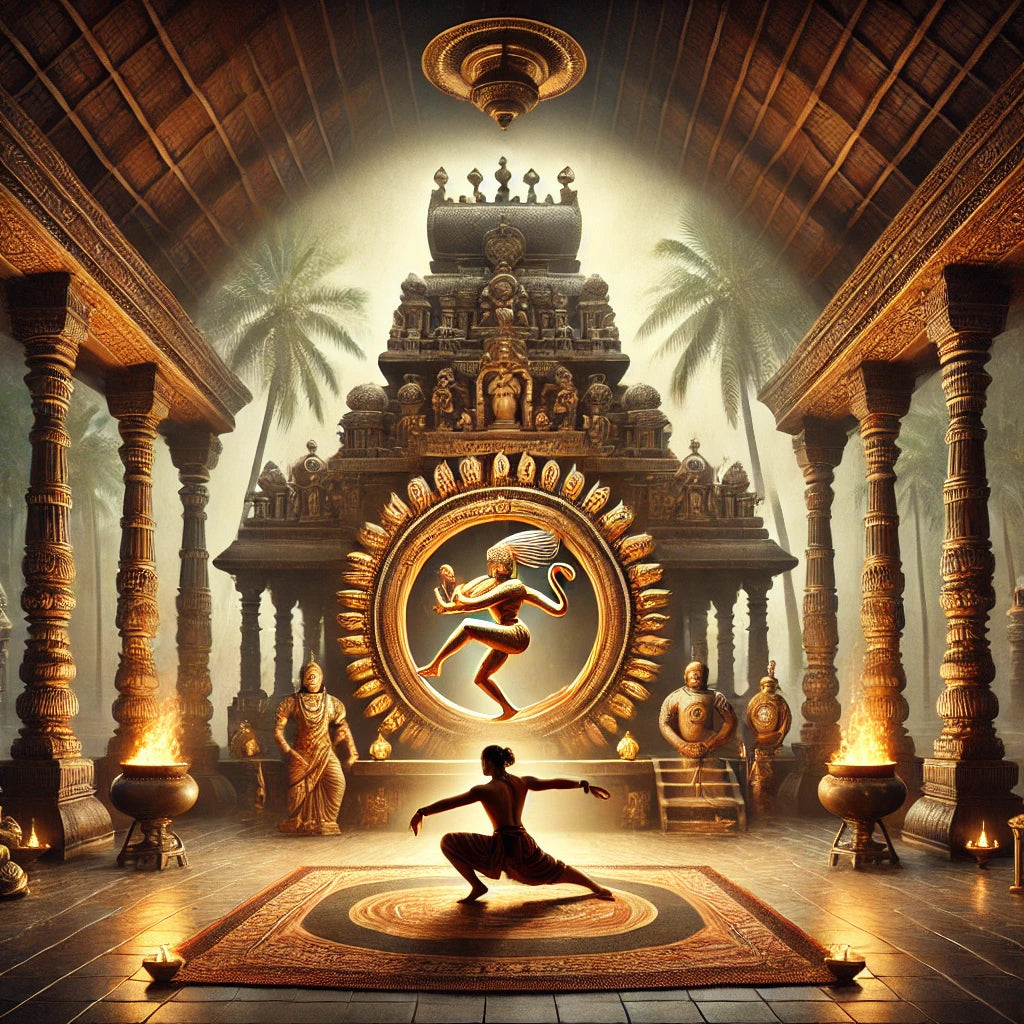Vikramaditya
Kalaripayattu
Kalaripayattu
Couldn't load pickup availability
Kalaripayattu: The Ancient Martial Art of Hindus
Kalaripayattu, often regarded as one of the oldest martial arts in the world, is a revered traditional discipline rooted in the spiritual and cultural heritage of Hinduism. Originating from the southern state of Kerala, this ancient art form is deeply intertwined with the philosophies of dharma (righteousness) and holistic living. Its name derives from two words: “Kalari,” meaning battlefield or training arena, and “Payattu,” meaning fight or practice.
Key Features and Hindu Significance
-
Philosophical Roots:
Kalaripayattu draws inspiration from Hindu scriptures, including the Dhanurveda (a treatise on warfare), which outlines the principles of armed and unarmed combat. It reflects the ideals of protection, courage, and self-discipline that align with the warrior ethos in Hindu traditions. -
Techniques and Movements:
The movements of Kalaripayattu are derived from nature and Hindu iconography, incorporating postures mimicking animals like the lion, elephant, and snake, which hold symbolic significance in Hindu mythology. The practice integrates dynamic strikes, kicks, and weaponry with yoga-like flexibility and breath control. -
Spiritual Connection:
Each Kalari (training arena) is considered sacred, often consecrated with rituals honoring Bhagavati (Goddess Durga) or Shiva, both associated with martial prowess and protection. Practitioners seek blessings from these deities before training, emphasizing the spiritual dimension of Kalaripayattu. -
Healing and Ayurveda:
Kalaripayattu is more than just a combat system—it incorporates Ayurvedic principles, including massage therapies like Kalari Chikitsa, for physical and mental healing. This reflects the holistic approach to health and wellness central to Hindu philosophy. -
Cultural Legacy:
The art has been preserved through generations by the Nair and Ezhava communities, with roots in the ancient Gurukula system of learning. Its techniques have been passed down as a sacred lineage, maintaining its connection to Hindu cultural identity.
Kalaripayattu in Modern Times
Kalaripayattu continues to thrive as a symbol of Hindu heritage and resilience. Today, it is celebrated not only for its martial applications but also as a profound art form blending physical, mental, and spiritual growth. From temple rituals to contemporary performances, Kalaripayattu embodies the enduring legacy of Hindu wisdom and strength.
Share

